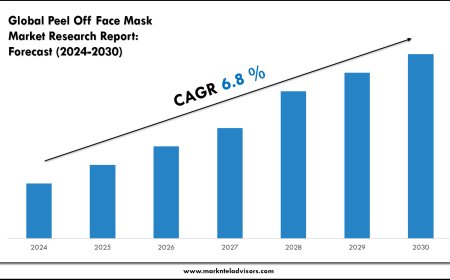How Can Fleet Logistics Support Improve Operations
Fleet Logistics Support is more than just the movement of goods—it's the backbone of modern operational efficiency.

In today’s fast-paced, demand-driven economy, Fleet Logistics Support plays a critical role in shaping the success of organizations, especially those involved in transportation, defense, construction, retail, and e-commerce. As companies push for greater speed, efficiency, and customer satisfaction, the question arises: How can Fleet Logistics Support improve operations? The answer lies in a strategic combination of technology, planning, and process optimization.
Understanding Fleet Logistics Support
At its core, Fleet Logistics Support involves the management of a company’s vehicle fleet, including transport trucks, vans, ships, or even aircraft. It encompasses maintenance, routing, fuel management, driver supervision, safety compliance, and real-time tracking. The aim is to ensure that goods, services, or personnel reach their destinations safely, timely, and cost-effectively.
1. Optimized Resource Utilization
Fleet logistics support ensures that every vehicle and driver is used to their fullest potential. Route optimization, vehicle scheduling, and load management minimize fuel consumption and downtime. For example, GPS-enabled systems can suggest the shortest and fastest delivery routes, reducing unnecessary mileage and saving time.
When resources are effectively allocated, companies avoid overuse or underuse of vehicles, which can lead to wear and tear or inefficiency. Over time, this optimized usage significantly reduces operational costs.
2. Real-Time Visibility and Tracking
Modern fleet logistics systems are integrated with GPS, IoT sensors, and cloud-based platforms. These tools offer real-time tracking of fleet vehicles, enabling managers to monitor progress, reroute deliveries in case of traffic or weather disruptions, and ensure that vehicles stick to their assigned paths.
This level of visibility improves accountability, reduces delays, and enhances customer satisfaction through accurate delivery ETAs and updates.
3. Enhanced Predictive Maintenance
Breakdowns can be expensive—not just in repair costs, but in lost time and compromised customer trust. Fleet logistics support includes predictive maintenance strategies that leverage telematics and AI to anticipate mechanical issues before they happen.
By proactively servicing vehicles, companies reduce the risk of breakdowns, lower repair expenses, and extend the lifespan of their fleet. It also ensures uninterrupted operations, which is critical in industries like defense or healthcare logistics where delays can be catastrophic.
4. Data-Driven Decision Making
A modern fleet management system gathers a wealth of data: fuel usage, driver behavior, delivery timelines, idle times, and more. With advanced analytics, this data becomes a powerful decision-making tool.
Managers can identify patterns, pinpoint inefficiencies, and implement improvements based on hard evidence rather than guesswork. For instance, analyzing driver performance may highlight the need for further training or reveal opportunities to incentivize safer and more efficient driving habits.
5. Environmental Sustainability
Sustainability is no longer optional—it's a corporate responsibility. Fleet logistics support can help organizations reduce their carbon footprint by managing fuel consumption, optimizing routes, and even integrating electric or hybrid vehicles.
Green fleet initiatives not only help the environment but also improve brand image, attract eco-conscious clients, and may lead to government incentives or tax breaks.
6. Cost Reduction and Profit Maximization
Perhaps the most tangible benefit of fleet logistics support is cost reduction. From lowering fuel expenses to minimizing idle time and reducing the need for emergency repairs, every aspect of a streamlined logistics system contributes to the bottom line.
Moreover, satisfied clients due to faster, more reliable deliveries often translate into repeat business and enhanced reputation.
7. Improved Safety and Compliance
Fleet logistics includes managing driver hours, ensuring proper vehicle maintenance, and monitoring behaviors like speeding or hard braking. Staying compliant with safety regulations reduces the risk of fines, accidents, or legal issues.
Furthermore, telematics data can trigger alerts for unsafe driving, allowing companies to take corrective actions early and reduce insurance premiums.
8. Strategic Scalability
As businesses grow, so do their logistical needs. A solid fleet logistics foundation allows for easy scaling—adding new routes, vehicles, or regions without compromising efficiency. With centralized systems and standardized procedures in place, expansion becomes smoother and more controlled.
Conclusion: A Competitive Advantage You Can’t Ignore
Fleet Logistics Support isn’t just a backend function—it’s a strategic enabler that can give businesses a competitive edge. From boosting operational efficiency to ensuring safety, reducing costs, and enhancing customer experiences, its benefits are comprehensive and compelling.
Whether you’re in manufacturing, defense, retail, or logistics, investing in robust fleet logistics support is no longer optional—it’s a necessity for future-ready operations.



































